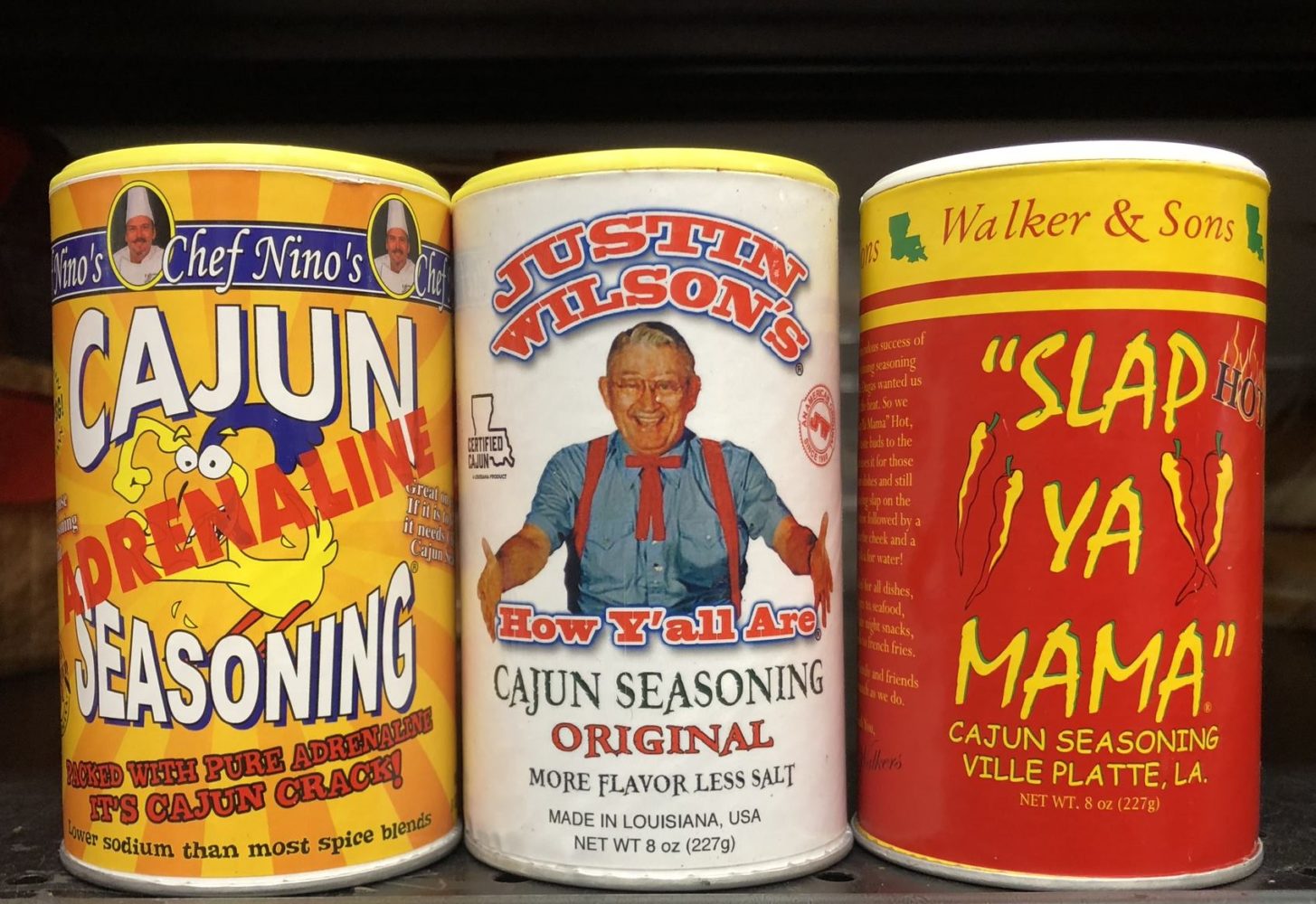Lexicon
Do Cajuns Speak Cajun?
The complex relationship between language names and identity
Published: May 31, 2019
Last Updated: August 30, 2019

Cajun identity on display as a marketing tactic in a local Rouses Market.
When applied to language, the term “Cajun” is problematic because of the close association it creates between Cajun French and the ethnic group also known as Cajuns. While it may be true that the language is most widely spoken by people who identify themselves in this way, many self-identified Creoles (usually persons of color) and American Indians also speak a type of French that is similar, if not identical, to that of their Cajun neighbors, yet they are sometimes reluctant to call what they speak “Cajun” because of their ethnic affiliation. This is less often the case among Indians than among Creoles of color, since many self-identified Indians also claim Cajun ethnicity and are therefore less averse to calling their language “Cajun” (although the glossonym “French” is also common among francophone Indians, and more recently some have begun using the label “Indian French”).
A further reason that “Cajun” is problematic as a glossonym is the widely held misconception that the Cajuns are the descendants of the Acadian exiles expelled from their homeland by the British in 1755 and that, by extension, the French they speak is the direct descendant of the Acadian French the exiles brought with them to Louisiana. In reality, the history and ancestry of the Cajuns and their language are far more complex. As historian Carl Brasseaux has shown, during the nineteenth century the Acadian settlers assimilated many members of other groups, while at the same time English-speaking Américains (as Louisiana’s francophone population called them) began applying the ethnonym Cajun in a general way to all poor, rural, French-speaking whites, regardless of origin.
In the latter part of the twentieth century, the word Cajun, which had previously been used as an insult, came to be used with pride and, increasingly, to market cultural commodities.
This semantic extension and rehabilitation of the Cajun label explains why Avoyelles Parish, which was not a site of Acadian settlement, today calls itself the “Cajun Crossroads,” and why Evangeline Parish, whose francophone population has its origins mainly in France and Québec rather than in Acadia, bears the name of Longfellow’s Acadian heroine. Like the people called Cajuns, “Cajun” French has multiple sources, only one of which is the French brought to Louisiana by the Acadians. In order to avoid linking the language to a particular ethnic group or implying that it has specifically Acadian origins, some linguists prefer the more neutral glossonym Louisiana Regional French, or simply Louisiana French.
In a future column we’ll look at the label “Creole,” another example of how conflating ethnonyms and glossonyms can lead to ambiguity and confusion.
Thomas A. Klingler is Richard V. and Seola Arnaud Edwards Associate Professor of French at Tulane University, where he teaches courses in French and linguistics. He is the author of If I Could Turn my Tongue like That: The Creole Language of Pointe Coupee Parish, Louisiana and co-editor of the Dictionary of Louisiana French: As Spoken in Cajun, Creole, and American Indian Communities.
